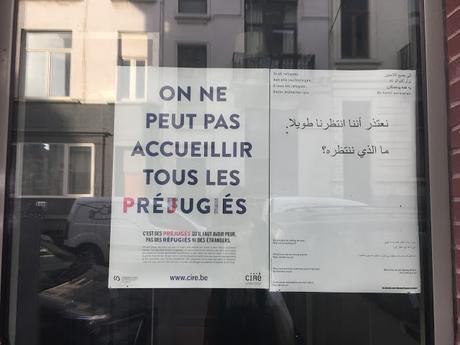 In the years since I've become more critical of the privilege that existed throughout, and the guilt that followed. I may have grown up in a bigoted country (albeit quietly), but I wouldn't argue individually-targeted oppression. I've been very fortunate; my parents' hard work and sacrifice literally paid off. And all the while, systemic inequalities continue to persist. To have felt ostracized and to have unabashedly been marginalized is an entire spectrum of nuanced experience. Valid, real, true. Bless this fractured America of ours.
In the years since I've become more critical of the privilege that existed throughout, and the guilt that followed. I may have grown up in a bigoted country (albeit quietly), but I wouldn't argue individually-targeted oppression. I've been very fortunate; my parents' hard work and sacrifice literally paid off. And all the while, systemic inequalities continue to persist. To have felt ostracized and to have unabashedly been marginalized is an entire spectrum of nuanced experience. Valid, real, true. Bless this fractured America of ours.Neither racism nor violence is new to this country nor this world, and yet... the events that took place in Charlottesville were viscerally sickening; as was (is) the lack of morally sound and poignant leadership. Hearing about Barcelona and seeing Detroit this weekend (however imperfect a film) further emphasized my disillusionment. I can't imagine a more necessary time to be reading Rebecca's Solnit's Hope in the Dark: Untold Histories, Wild Possibilities. Nor to stumble across a horoscope such as this one: "It’s easy to take on the imagined weight of this whole world, more and more, until you can hardly stand underneath it. Don’t imagine away your own power, this week. Don’t imagine away the strength you have to keep moving, to keep living, to make the changes on the ground that matter." What does that look like you, too, might have asked yourself. It's not too late:
Get informed about what exactly happened in Charlottesville. Understand the why. Sit with your discomfort while doing so.
Make a donation to organizations that are making a difference now. Regularly fight passivity as well as hate.
Show up, because... yes, there are still points to protesting.
Do not stop paying attention, please.
These days, it’s especially important to have a great source of news and push yourself outside your bubble. Two podcasts we highly recommend: Code Switch, an eye-opening weekly NPR podcast hosted by journalists of color who address the trickiest questions about race in America. And The Daily, a 20-minute weekday podcast from The New York Times. (Yesterday’s episode included first-hand footage from a correspondent in Charlottesville; and today’s episode detailed a city councilor’s experience during the fight over the Robert E. Lee monument, and the chain of events that led to this weekend’s violence.)
It’s Been a Minute is another podcast to add to your playlist. Host Sam Sanders took on the topic of “Charlottesville and White People” in his latest episode. For his part, Sanders sees the hashtag #ThisIsNotUs, which went viral in the aftermath of Charlottesville, as unhelpful. “Even if we don’t think we’re part of the problem, we’re part of the system that has a problem,” he says. “That means that every day we have to ask ourselves what we’re doing to make things better or worse. And a hashtag like #ThisIsNotUs… that’s just a cop-out. -Cup of JoNo matter your defined race at this moment in time, recognize white privilege. white supremacy, white male terrorism.
Positively influence the next generation—whether or not you're a parent or an educator.
Take better care of yourself and those you care about. Be an ally.

